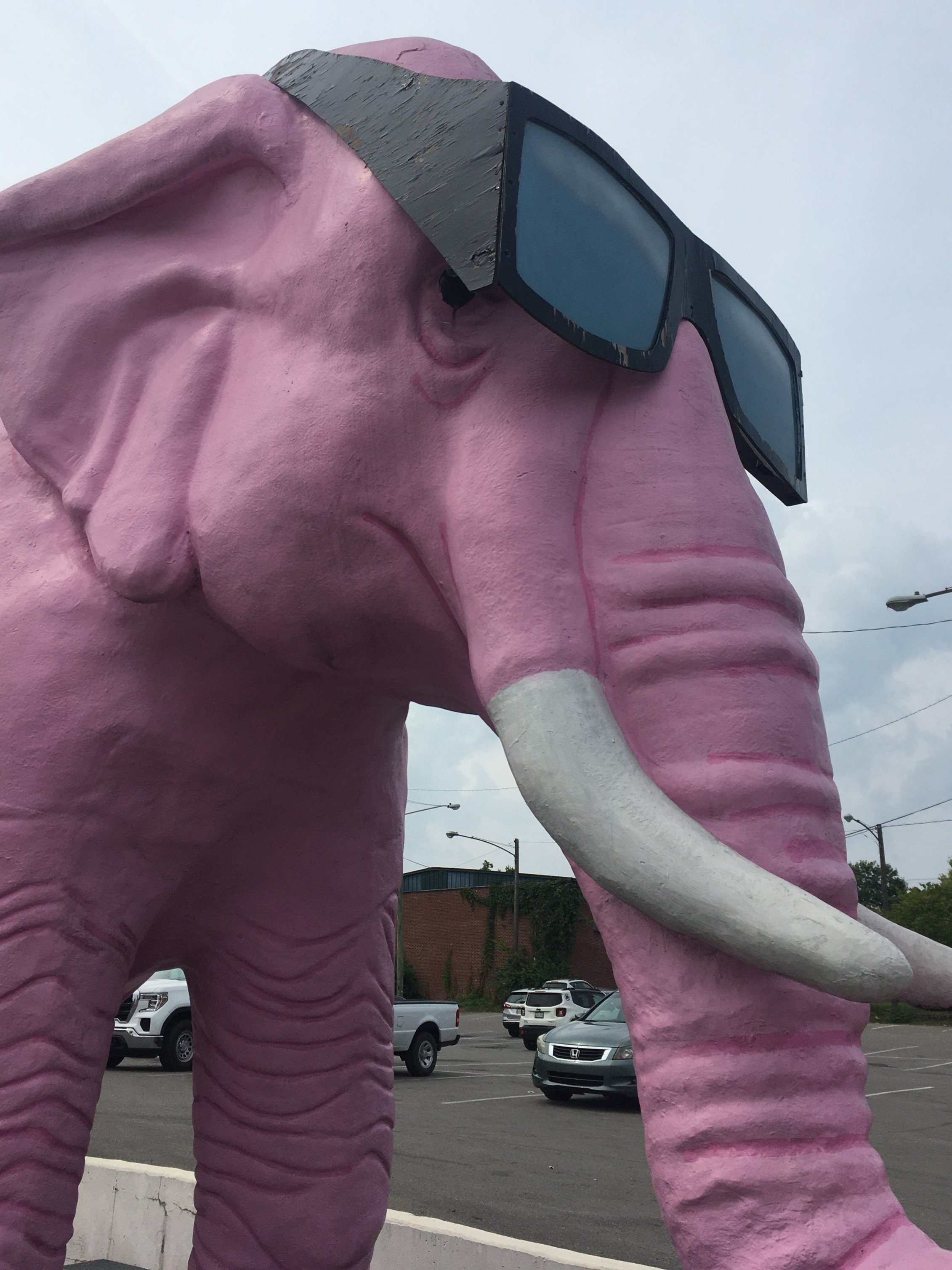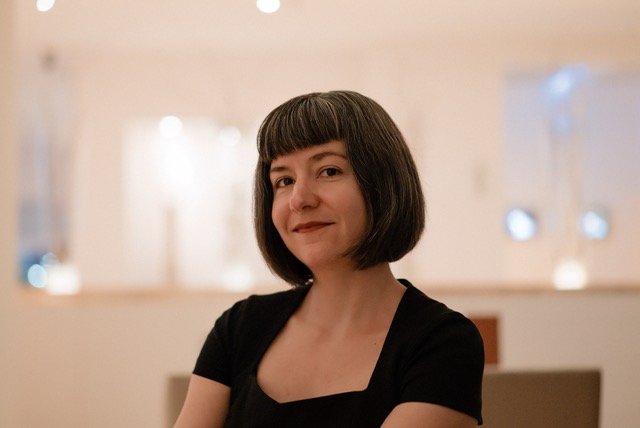
Contributors
Elisabeth Aiken is an Associate Professor of English at Saint Leo University in Saint Leo, Florida, where she currently serves as the Associate Chair of the Department of Interdisciplinary Studies and Experiential Learning. She holds a PhD in Literature and Criticism from Indiana University of Pennsylvania, where she focused on American literature of the 19th, 20th, and 21st centuries. In her research she is interested in Southern and Appalachian literature through ecocritical, postcolonial, and cultural studies lenses; she is also committed to furthering both the academic and social connections between interdisciplinary humanities and community activism. She lives in Clermont, Florida, with her husband and two sons.
Jill E. Anderson is an Associate Professor of English at Tennessee State University, where she teaches women’s studies, American literature, and media literacy. She is not a Southernist but is a rather enthusiast of all things Murder, She Wrote and The Golden Girls. Her book Homemaking for the Apocalypse: Domestic Horror in the Atomic Age appeared with Routledge in 2021, and she is currently working on a full-length edited collection on The Golden Girls.
Marshall Needleman Armintor is Principal Lecturer in English at the University of North Texas. His research interests are primarily in 19th and early twentieth-century British literature and critical theory, and he has published articles on neo-Victorian literature and MAD Magazine. His book Lacan and the Ghosts of Modernity: Masculinity, Tradition, and the Anxiety of Influence (Peter Lang) was published in 2004. He has taught a wide range of courses at UNT since 2003, with topics ranging from graphic novels, to James Joyce, Victorian culture and videogame narrative. He maintains a blog on theory, neo-Marxism, and art in the age of late capital at posthegel.com
Michael P. Bibler is Robert Penn Warren Associate Professor of English at Louisiana State University. He is author of Cotton’s Queer Relations: Same-Sex Intimacy and the Literature of the Southern Plantation, 1936-1986, and he has contributed essays to several recent works in Southern Studies and LGBTQ Studies, including Oxford Handbook of the Literature of the U.S. South, Cambridge Companion to the Literature of the American South, Keywords for Southern Studies, Palgrave Handbook of the Southern Gothic, and Cambridge Companion to American Gay and Lesbian Literature. He is currently finishing a book entitled “Literally, Queerly: The Silly Pleasures of Silly Pleasures,” which discusses literature, art, music, and film from the 1980s to the present by RuPaul, Truman Capote, John Waters, Del Shores, and others. The book also includes a chapter on the B-52s, which, instead of tackiness, focuses on the importance of literal language and everyday objects in their music.
Joe T. Carson is an independent scholar. He received his Ph.D. in English from Rice University in 2019. His current book project, American Anthropocenes: Race and Deforestation in the Novel, develops a literary history of climate change and details the importance of deforestation and timbering in shaping the politics of race and labor in the American South. His peer reviewed work has appeared in South: A Scholarly Journal, Green Theory & Praxis, and is forthcoming in Studies in the Novel.
Anna Creadick is Professor of English and American Studies at Hobart and William Smith Colleges. Author of the book Perfectly Average: The Pursuit of Normality in Postwar America, she has also written about Appalachia, popular fiction, McCullers, disability, whiteness, Faulkner, teaching, reading, Cather, and other topics in Southern Cultures, Post-45 Peer Reviewed, Appalachian Journal, Mosaic, Transformations, and other venues.
Isabel Duarte-Gray completed her PhD in English at Harvard University, specializing in Latinx literature and Ecostudies. Her first poetry collection, Even Shorn, debuted with Sarabande Books in 2021.
Aaron Duplantier is an Assistant Teaching Professor in Syracuse University’s Writing Studies Department where he researches New Media and Pop Culture. He is the author of the book Authenticity and How We Fake It: Belief and Subjectivity in Reality TV, Facebook and YouTube. His PhD is from LSU English.
Joseph A. Farmer earned his Ph.D. in American literature at The University of Mississippi, with an emphasis in southern letters. He is an assistant professor at Northeastern State University in Tahlequah, Oklahoma, in the foothills of the Ozarks. He teaches courses on Faulkner, Poe, African-American literature, southern women’s literature, and writers of the Ozarks. He is currently preparing a book on southern women’s life writing.
Jarrod Hayes is Professor of French Studies at Monash University. He is the author of Queer Nations: Marginal Sexualities in the Maghreb (Chicago, 2000) and Queer Roots for the Diaspora, Ghosts in the Family Tree (Michigan, 2016). He co-edited, with Margaret R. Higonnet and William J. Spurlin, Comparatively Queer: Interrogating Identities across Time and Cultures (Palgrave Macmillan, 2010). His current project, Reading across the Color Line: Racialization in the French Americas, seeks to foster dissonance between Anglo-American readers’ expectations and French representations of race as well as denaturalize race through readings of the cultural productions of French America.
Jolene Hubbs is an associate professor of American Studies at the University of Alabama, where she teaches and writes about the literature and culture of the U.S. South. She is at work on a book exploring the formative role that representations of poor white southerners play in shaping both middle-class American identity and major American literary genres.
Travis A. Rountree is an assistant professor in the English Department at Western Carolina University. He earned his PhD from the University of Louisville, his MA in English from Appalachian State University with a certificate in Appalachian Studies, and his BA in English from James Madison University with a minor in American Studies. He teaches first year composition courses as well as graduate courses in composition and rhetoric. His research interests include queer archival research and pedagogy, Country Music scholarship, Appalachian rhetorics, place-based pedagogy, and public memory studies. He has been published in The North Carolina Folklore Journal, Journal of Southern History, and Appalachian Journal.
Garth Sabo is an assistant professor in the Center for Integrative Studies in the Arts and Humanities at Michigan State University, where he teaches classes in climate fiction, graffiti, regional American literature, and the medical humanities. His research focusing on scatological literature, waste studies, and material ecocriticism has appeared in Arizona Quarterly, Midwestern Miscellany, and CR: The New Centennial Review.
Jimmy Dean Smith lives with Sharee St. Louis in Barbourville, Kentucky. He directed the Union College Honors Community, which helped dozens of young Appalachians achieve a college education, from its inception to its demise. He has recently published articles on Tony Earley, Ron Rash, Flannery O’Connor, and Frank X Walker. His recent work has appeared in North Carolina Literary Review; Summoning the Dead: Critical Essays on Ron Rash (U South Carolina P); Western American Literature; Flannery O’Connor Review; Small Screen Souths (LSU P); Critical Insights on Flannery O’Connor (Grey House); Representing Rural Women (Rowman and Littlefield); and Ecocriticism and the Future of Southern Studies (LSU P).
Catherine Egley Waggoner is professor of Communication at Wittenberg University in Springfield, OH. She is the co-author (with Helene A. Shugart) of Making Camp: Rhetorics of Transgression in U.S. Popular Culture, University of Alabama Press (2008), which won two book awards within the National Communication Association. Her book (with Laura Egley Taylor), Realizing Our Place: Real Southern Women in a Mythologized Land, University Press of Mississippi (2018), was nominated for a Mississippi Institute of Arts and Letters Award. She earned a Ph.D. in Communication from The Ohio State University and teaches courses in critical/cultural studies, performance of gender, and rhetorical criticism. In 2014, she was awarded Wittenberg University’s Alumni Award for Distinguished Teaching, the highest award for Wittenberg faculty. She grew up in the Mississippi Delta and is currently pursuing projects related to the rhetoric of charm.
Charles Reagan Wilson was the Kelly Gene Cook Sr. Chair of History and Professor of Southern Studies at the University of Mississippi, where he taught from 1981-2014. He worked extensively with graduate students and served as Director of the Southern Studies academic program from 1991 to 1998, and Director of the Center for the Study of Southern Culture from 1998-2007. Wilson received bachelor’s and master’s degrees from the University of Texas at El Paso and earned his PhD in history from the University of Texas at Austin. He taught at the University of Wurzburg, Germany, the University of Texas at El Paso, and Texas Tech University before coming to Oxford. Wilson is the author of Baptized in Blood: The Religion of the Lost Cause, 1865-1920 (1980), a study of the memory of the Confederacy in the post-Civil War South, Judgment and Grace in Dixie: Southern Faiths from Faulkner to Elvis (1995), which studies popular religion as a part of the culture of the modern South, and Flashes of Southern Spirit: Meanings of the Spirit in the U. S. South (2011). He is also coeditor (with Bill Ferris) of the Encyclopedia of Southern Culture (1989), which received the Dartmouth Prize from the American Library Association as best reference book of the year and is also general editor of the 24-volume New Encyclopedia of Southern Culture (2006-2013). He is editor or coeditor of Religion and the American Civil War (1998), The New Regionalism (1996), and Religion in the South (1985).
Susannah Young is a self-employed communications strategist, writer, and creative director living in Chicago. Over the course of her career, she’s had the pleasure of working with political candidates, in movement politics, for hundreds of nonprofits across the United States, and with a number of Fortune 500 companies. Since 2009, Susannah has also worked as a music critic. Her music criticism has appeared in the book Vinyl Me, Please: 100 Albums You Need in Your Collection (Abrams Image, 2017) and on Vinyl Me, Please’s editorial site, as well as Pitchfork, KCRW, and other publications and outlets.


















